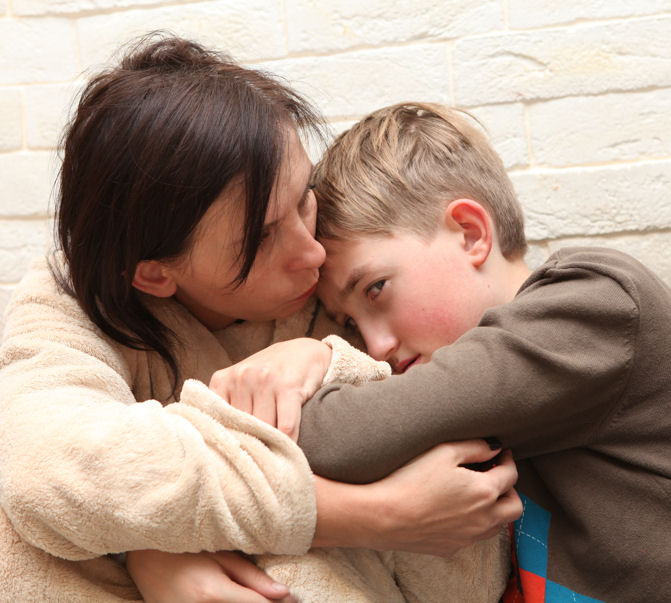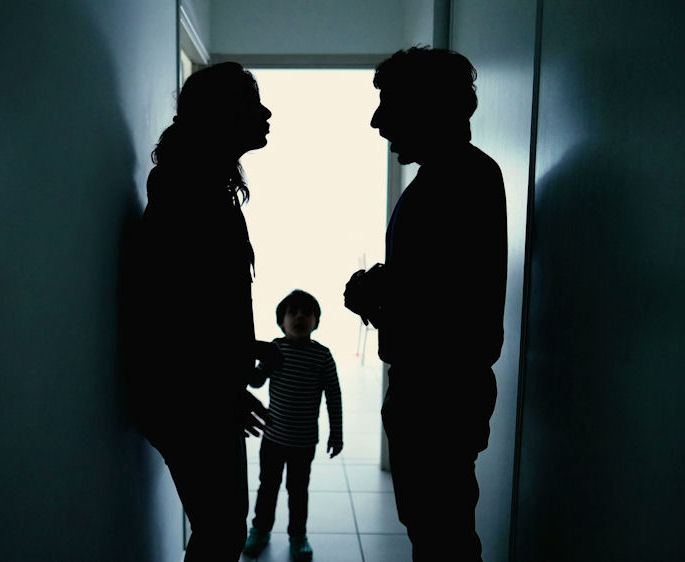Parental Burnout Quiz: Find Help Today
Parenting a child with a behavioral health disorder can be an incredibly challenging journey. The relentless stress, emotional strain, and constant demands can take a toll on parents, affecting not only their own well-being but also the dynamics within the entire family.
Being a parent can already make any adult feel helpless at some point or another. However, parents trying to manage children and teens suffering from mental illness often deal with relentless stress. As a parent, it’s difficult to conclude that you need help in caring for your child. But remember, you can’t appropriately care for your child if you can’t take care of yourself either.
Parents may experience a range of emotions including guilt, frustration, sadness, and helplessness as they navigate their child’s mental health challenges.
The ongoing stress of managing a child’s mental illness, coordinating appointments, and dealing with unpredictable behaviors can take a toll on parents’ mental and physical health.
The cost of therapy, medication, and other treatments can strain a family’s finances, leading to additional stress and anxiety. Time and Energy
Parents may find themselves dedicating a significant amount of time and energy to caregiving, often at the expense of their own needs and other family members.
Siblings of a child with a mental illness may feel neglected or overshadowed by their sibling’s needs, leading to feelings of resentment or confusion.
The stigma associated with mental illness can lead to social isolation as parents fear judgment from others and struggle to find understanding and support.
Children with mental health issues may have difficulty succeeding in school, leading to frustration for both parents and the child.
The constant focus on the child’s mental health can disrupt family routines and dynamics, causing tension between parents and even between siblings.
Sleep disruptions caused by the child’s behavioral issues or ongoing monitoring can lead to exhaustion and decreased ability to cope.
Parents may feel judged by others, including extended family, friends, and even professionals, which can add to their stress and feelings of inadequacy.
Finding appropriate treatment options, therapists, and medications can be overwhelming and confusing, adding to the parents’ burden.
In some cases, parents may have concerns about their child’s safety due to self-harm or aggressive behaviors, leading to constant worry.
The demands of caregiving can impact parents’ ability to work, potentially affecting their financial stability and career prospects.
Parents may experience grief over the loss of the “typical” childhood they envisioned for their child and the challenges they face as a family.
During crises or acute episodes, parents may have to manage emergencies, leading to high levels of stress and emotional turmoil.
Communicating with a child who may struggle with expressing their emotions or thoughts can be challenging, making it difficult to understand their needs.
These are just a few examples of the struggles that families and parents often face when dealing with a child or teen with a mental illness. It’s important for families to seek support, education, and appropriate treatment to navigate these challenges and promote the well-being of both the child and the entire family.
accordion please 😀

Are You Suffering from Parental Burnout?
This quiz is designed to help you identify if you’re experiencing parental burnout, a state of emotional, physical, and mental exhaustion that can result from the ongoing demands of caring for a child with a mental health disorder.
On a scale from 0 (not at all) to 3 (very much), rate how often the following statements apply to your situation:
"*" indicates required fields
Understanding Parental Burnout and Seeking Help
Parental burnout is a state of emotional and physical exhaustion that can result from chronic stress and the demands of caring for a child with a mental health disorder. It can lead to decreased effectiveness in parenting, reduced well-being, and even health issues. Recognizing burnout is the first step toward addressing it.
- Emotional exhaustion
- Reduced sense of accomplishment
- Detachment and distancing from family
- Negative mood and irritability
- Physical symptoms like headaches or stomachaches
- Difficulty focusing and making decisions
- Increased conflict in relationships
- Ongoing high levels of stress
- Lack of support or respite
- Neglecting self-care and personal needs
- Unrealistic expectations of oneself
- Difficulty setting boundaries
- Prioritize self-care and make time for activities you enjoy
- Set realistic expectations for yourself and seek help when needed
- Establish boundaries and ask for support from friends, family, or professionals
- Engage in stress-reducing activities like exercise, mindfulness, and hobbies
mitigating parental burnout is not only beneficial for the parents themselves but also for the entire family unit. By recognizing the signs of burnout and taking proactive steps to address it, parents can provide the best possible support for their child’s mental health journey while preserving their own well-being.

Effectively Supporting Your Child’s Mental Health
Getting your child the appropriate treatment for their mental health condition can significantly alleviate the demands and stress you’re experiencing. Paradigm Treatment offers comprehensive residential programs for teens and young adults with a focus on holistic and evidence-based therapies. By addressing underlying issues and providing a supportive environment, both you and your child can experience positive changes.
- Individualized treatment plans designed by expert clinicians
- Intensive individual and group therapy sessions
- Focus on addressing core issues, not just behavioral symptoms
- Family involvement and support
- Academic services to support education continuity
- Yoga and meditation for stress reduction
- Equine therapy for emotional expression and connection
- Experiential therapies to promote personal growth
- Focus on empowering young individuals and their families
Parental burnout is a serious concern, but you don’t have to navigate it alone. If you’re recognizing signs of burnout in your life, take the first step toward recovery by reaching out to Paradigm Treatment today. Our experienced team is here to support you and your child on the path to sustainable recovery and improved well-being.
Take Action Today
Don’t wait until burnout takes a toll on your well-being and your family’s dynamics. Contact us at Paradigm Treatment to learn more about how our comprehensive programs can provide the support you need. You and your family deserve the opportunity to lead healthy, fulfilling lives.
Other Youth Mental Health Topics You May Find Helpful…
When Teen PTSD Requires Inpatient or Residential Treatment
There are some events that are so distressing, they leave long-term effects on the mind and heart of those who experience them. This is especially true for teens who are […]
Continue ReadingTeen Depression, Anxiety, PTSD and Their Neurological Connections
Mental health disorders are nothing to be ashamed of. They’re very common, and anybody can suffer from one. Mental health disorders like anxiety, depression, and post-traumatic stress disorder (PTSD) are […]
Continue ReadingAdolescent PTSD: What You Need to Know
Often, people unfamiliar with post-traumatic stress disorder (PTSD) associate the condition with adults, and specifically with military veterans. And while it isn’t uncommon for military veterans to experience PTSD as […]
Continue ReadingTraumatic Events Teens May Experience
If you think about traumatic events and post-traumatic stress disorder, you might not consider teenagers in the equation. Unfortunately, many teens do experience trauma in their young lives. This trauma […]
Continue Reading
Lucy Nguyen is the Executive Director at Paradigm Treatment, overseeing all clinical treatment programs across the organization’s southwestern region. Her extensive experience includes working with young adults in private practice, serving as a therapist for children and teens with emotional and behavioral needs, and acting as a behavior interventionist for teens with developmental disorders. Lucy integrates cognitive-behavioral approaches with mindfulness and compassion in her work, and she is also EMDR-trained. She holds a Master of Science in Counseling from California State University, Fullerton, and a Bachelor’s degree in Psychology and Social Behavior from the University of California, Irvine.




